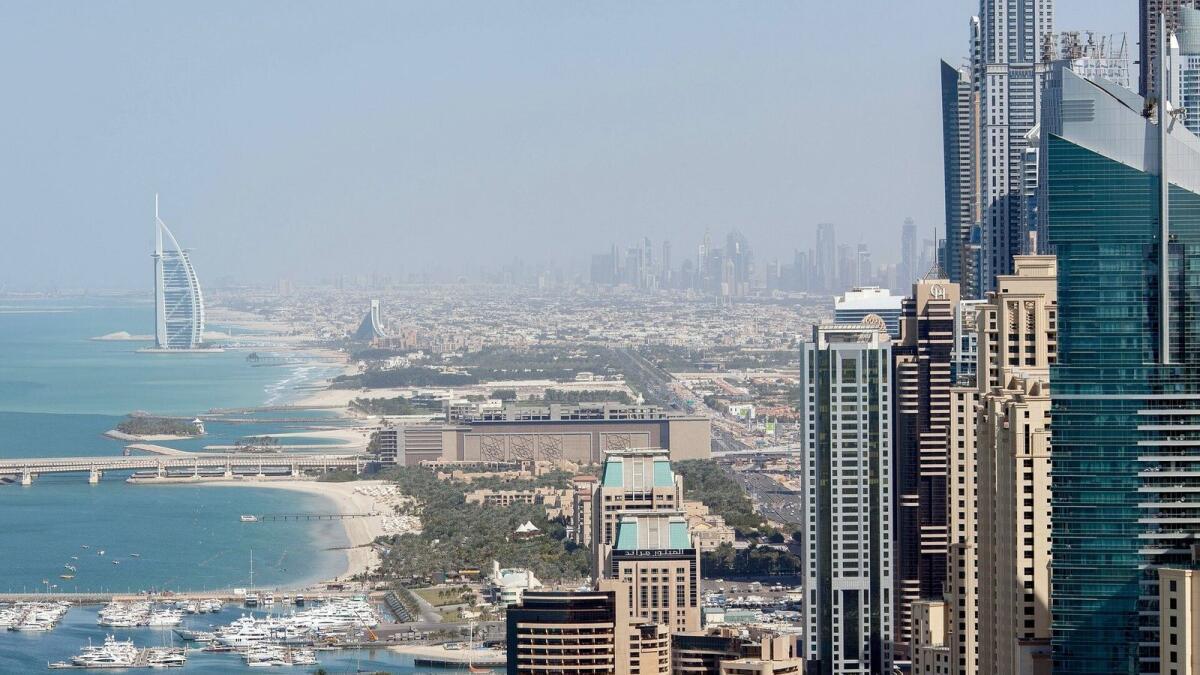
GCC Non-Oil Sectors Remain On Solid Ground
According to PwC's Middle East Economy Watch released on Tuesday, high-frequency indicators suggested that Q2 non-oil growth was also solid, with Saudi Arabia's flash GDP indicating a modest acceleration.
The GCC states' non-oil sectors are expected to grow faster as the US Federal Reserve prepares to announce its rate cut on Wednesday.“This acceleration will be supported by looser monetary policy as US interest rates are reduced, enabling GCC states with pegged currencies to also lower their rates, improving access to credit to grow the non-oil economy. Meanwhile, rising oil production could strengthen the fiscal positions of hydrocarbon exporters, provided prices remain favourable,” the PwC report said.
In June, Opec+ overcame internal tensions and agreed to extend its cooperation agreement at least through 2025 and a further adjustment was made in September, reflecting renewed supply-demand dynamics in the oil market. Additionally, non-oil sector growth indicators look solid this year. Deal making, for example, continues with 214 deals in H1 2024 as localisation, sovereign wealth fund investment and transformation continues apace. Fiscal outturns have also been positive, with the UAE, Qatar and Oman achieving surpluses and Saudi Arabia narrowing its deficit.
Uncertainty looms over the wider region, fuelled by ongoing conflicts, disruptions in the Red Sea, and reduced oil production. However, as interest rates ease, especially in countries with currencies pegged to the US dollar, access to credit should improve, fostering growth in the non-oil economy, PwC noted.“GDP forecasts from the IMF indicate an accelerating growth rate for the wider region to 2.8 per cent in 2024 (up from 2 per cent in 2023) and 4.2 per cent in 2025. For the GCC members, non-hydrocarbon sectors are poised to be primary drivers of growth as these countries continue to diversify their economies. The region also stands to benefit from shifting trade patterns by reducing trade barriers, diversifying products and markets and developing alternative trade corridors,” the report said.
Real non-oil growth across the GCC averaged 3.6 per cent in 2023, robust but down from over 5 per cent in 2021-22. Growth in 2023 was led by the UAE on 6.2 per cent, which was driven by Abu Dhabi's spectacular 9.1 per cent expansion.
The outturn so far for 2024 is broadly encouraging. Kuwait returned to non-oil growth at 4.7 per cent, its strongest result in years. Other solid results including 4.0 per cent in UAE and 3.8 per cent in Oman, while Saudi Arabia achieved 3.7 per cent in H1, the report showed.
However, Purchasing Manager Indices (PMIs) softened in most countries. There was a further softening in July, with PMIs hitting multi-year lows in Saudi Arabia and the UAE, although they were still firmly in expansionary territory. Other leading indicators show a more positive story. Saudi Arabia's manufacturing index showed 8.6 per cent y/y expansion in Q2, and tourist numbers were up by 6 per cent y/y in Dubai, 8 per cent in Oman and 14 per cent in Qatar.
The non-oil outlook in the GCC remains positive. The IMF's most recent forecast from April sees non-oil GDP growth accelerating to 4.5 per cent in 2025, which would be a three-year high and up from an expected 3.6 per cent this year.
Richard Boxshall, Partner and Chief Economist, PwC Middle East, commented:“While Opec+ decisions and oil price fluctuations remain important factors, the region's strong non-oil sector growth provides a buffer against global volatility. Looking ahead, continued diversification and a focus on innovation will be key to achieving sustainable growth.”

Legal Disclaimer:
MENAFN provides the
information “as is” without warranty of any kind. We do not accept
any responsibility or liability for the accuracy, content, images,
videos, licenses, completeness, legality, or reliability of the information
contained in this article. If you have any complaints or copyright
issues related to this article, kindly contact the provider above.

















Comments
No comment